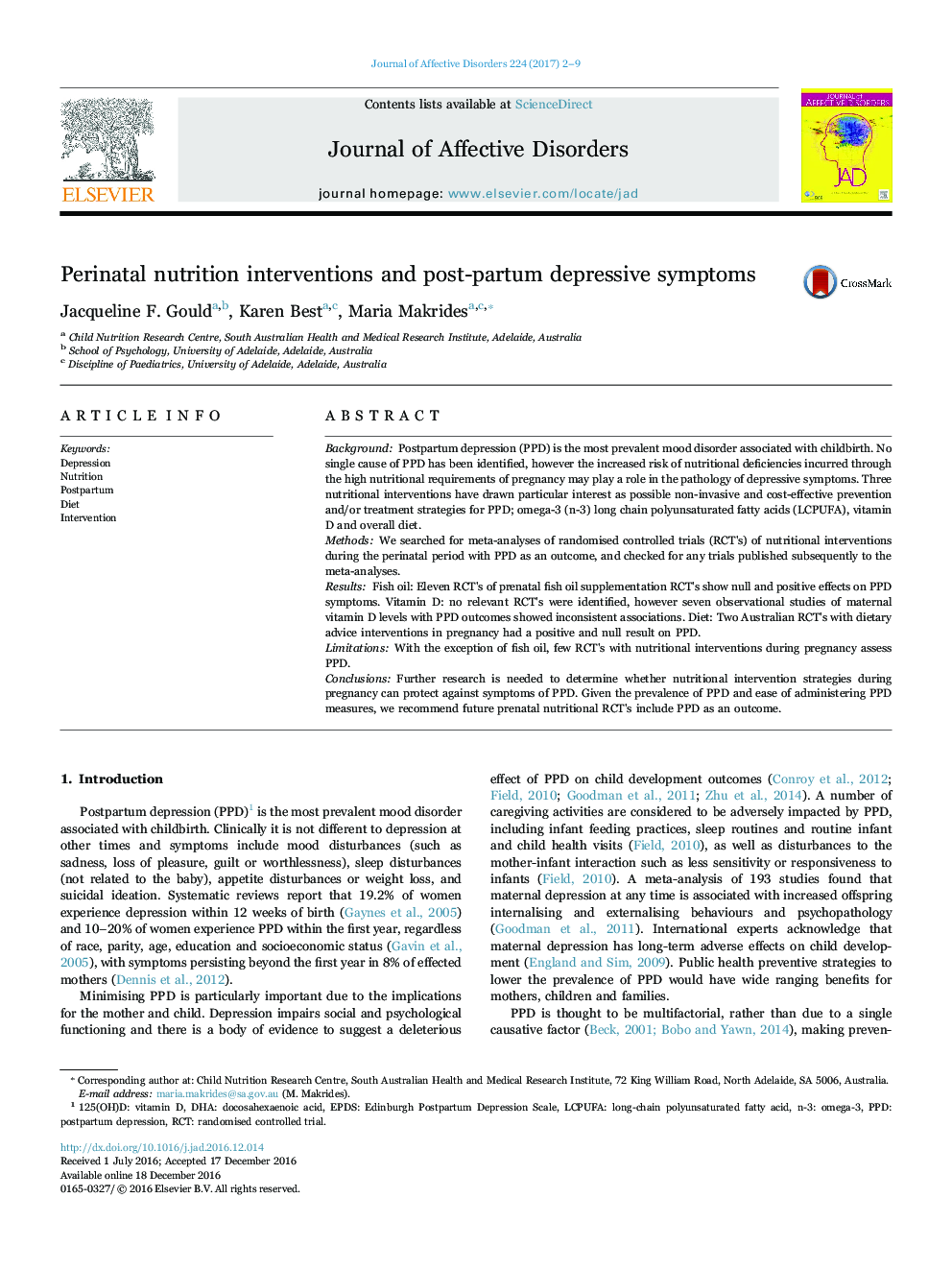| کد مقاله | کد نشریه | سال انتشار | مقاله انگلیسی | نسخه تمام متن |
|---|---|---|---|---|
| 5721817 | 1608101 | 2017 | 8 صفحه PDF | دانلود رایگان |
- 11 trials of perinatal fish oil supplementation showed inconsistent and inconclusive effects on postpartum depression.
- Only observational studies explored perinatal vitamin D and postpartum depression, with inconsistent associations found.
- Two antenatal trials of dietary intervention had null and positive effects on postpartum depression symptoms.
- Quality trials evaluating the effect of perinatal nutritional interventions on postpartum depression are needed.
BackgroundPostpartum depression (PPD) is the most prevalent mood disorder associated with childbirth. No single cause of PPD has been identified, however the increased risk of nutritional deficiencies incurred through the high nutritional requirements of pregnancy may play a role in the pathology of depressive symptoms. Three nutritional interventions have drawn particular interest as possible non-invasive and cost-effective prevention and/or treatment strategies for PPD; omega-3 (n-3) long chain polyunsaturated fatty acids (LCPUFA), vitamin D and overall diet.MethodsWe searched for meta-analyses of randomised controlled trials (RCT's) of nutritional interventions during the perinatal period with PPD as an outcome, and checked for any trials published subsequently to the meta-analyses.ResultsFish oil: Eleven RCT's of prenatal fish oil supplementation RCT's show null and positive effects on PPD symptoms. Vitamin D: no relevant RCT's were identified, however seven observational studies of maternal vitamin D levels with PPD outcomes showed inconsistent associations. Diet: Two Australian RCT's with dietary advice interventions in pregnancy had a positive and null result on PPD.LimitationsWith the exception of fish oil, few RCT's with nutritional interventions during pregnancy assess PPD.ConclusionsFurther research is needed to determine whether nutritional intervention strategies during pregnancy can protect against symptoms of PPD. Given the prevalence of PPD and ease of administering PPD measures, we recommend future prenatal nutritional RCT's include PPD as an outcome.
Journal: Journal of Affective Disorders - Volume 224, 15 December 2017, Pages 2-9
